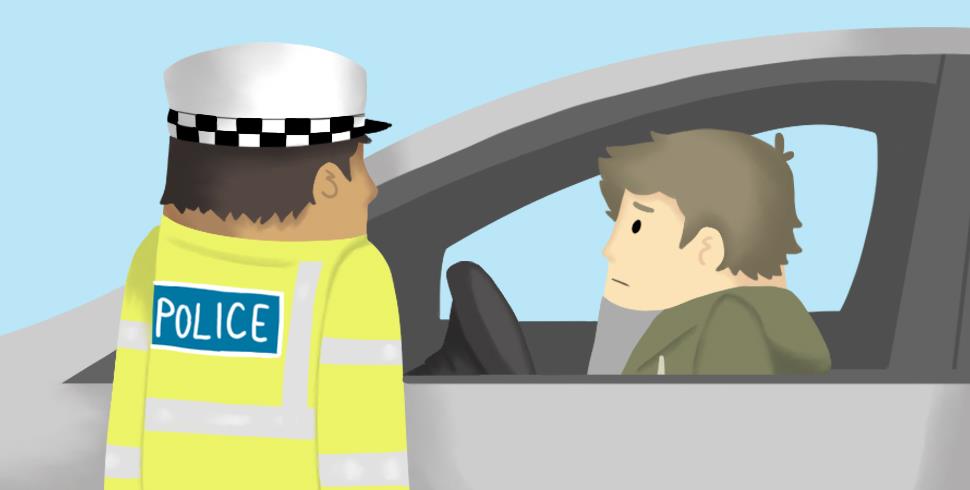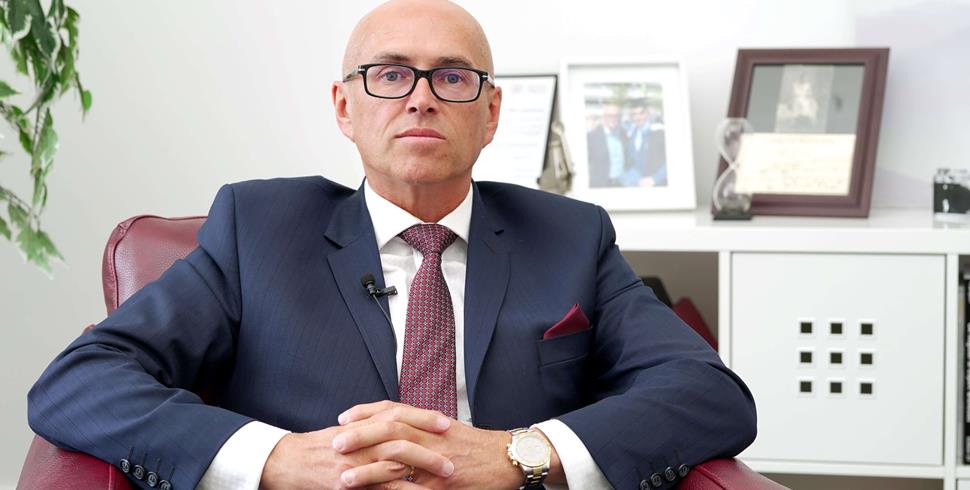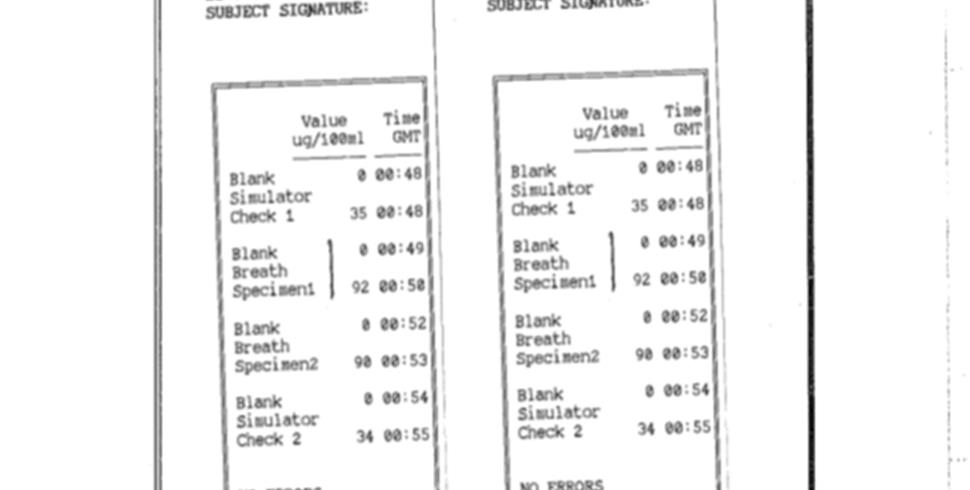
What is exceptional hardship?
Lots of driving offences carry penalty points. If you’ve been caught one too many times, you may be left asking yourself: "can I stop a totting up driving ban?". A totting-up ban is issued by the Magistrates' Court when you accrue 12 or more penalty points on your driving licence within a three-year period – usually after three or four minor driving offences. The answer to your question largely depends on whether you seek the help of a solicitor and, of course, the type of solicitor you instruct.
Exceptional hardship is the process of persuading the court that a 6 month driving ban would result in disproportionate consequences for you or people who rely on you. You will need to go to court to make the argument and should present evidence on the day. Don't make the mistake of confusing 'hardship' with 'exceptional hardship'. You are supposed to suffer hardship for the offences that have been committed - that's the purpose of the penalty. Exceptional hardship is where the consequence for you, or others, far outweighs the crimes committed.
The court should automatically list the case for court without you asking. They will recognise the risk of a driving ban and give you the opportunity to argue hardship. Once you respond to the notice of prosecution and plead guilty, you will receive a letter in the post with date and time for court.
M.A.J Law is a specialist driving defence firm. We take the time to review your circumstances and determine the best plan of action in order to limit the consequences. Exceptional hardship is one way to avoid a lengthy driving ban.
Here, we’ve provided a broad overview of totting-up disqualifications. We explain what's involved in exceptional hardship, who can use it and how to maximise the chance of avoiding a 6 month driving ban.
Can I argue exceptional hardship?
You can argue exceptional hardship if the following applies to you;
- you have reached 12 or more points on your licence; and
- you've been driving for longer than 2 years; and
- you have not argued exceptional hardship in the last three years*
Remember that the burden falls on you to prove hardship with the correct documentary evidence. The courts are more likely to find hardship if the driving ban would also impact others (like young children or elderly relatives).
*Should you wish to argue exceptional hardship more than once, you cannot use the same reason twice in any three-year period.
What happens at an exceptional hardship hearing?
An exceptional hardship hearing is similar to a trial. You may be asked to take the stand, swear on oath and give evidence to the court. If you are representing yourself, you will need to explain why your licence is important to you. The prosecution may also 'cross-examine' you about your circumstances with the aim of discrediting your evidence.
If you are represented by a solicitor you may not need to take the stand. Instead, your solicitor will present your case and any supporting evidence on your behalf. It is also less likely the CPS will question you.
If the court agrees with you, you will not be banned. If it does not, the 6 month ban starts immediately.
Why you should avoid exceptional hardship at all cost
Exceptional hardship should always be a last resort. The problem with exceptional hardship is that it leaves a lot to chance. You could prepare the strongest argument and bring to court the best evidence, but if the magistrates are in a particularly bad mood, they will ban you for 6 months. Your only option at that stage is to appeal to the Crown Court and re-run the application there (at a significant cost to you - and with no guarantee).
In our view, it makes more sense to check the evidence first. Whether you're accused of speeding, using a mobile phone, driving carelessly or failing to ID the driver, you have every right to plead not guilty and to check the evidence. If the police cannot produce the evidence in time, or if we can fault fault with the paperwork, the case will probably fail (meaning you are not convicted and cannot receive penalty points). If the evidence checks-out, you can later change your plea and run exceptional hardship. The number of penalty points cannot increase and the magistrates may not know you've previously challenged the case - meaning it can have no impact on the hardship argument.
To learn more about how we challenge driving offences, see our offences page.
You should also be aware that due a significant backlog of cases within the CPS office, lower priority motoring offences are often pushed to the back of the queue and forgotten about. This can lead to delays in disclosing evidence and practical problems in proving cases. For this reason - and many others - we continue to win driving offences.
The final problem with exceptional hardship is this - even if the court accept the argument and remove the ban, you are still driving around with 12 or more points on your licence for the next three years (or until the oldest set of points drop off). One more hiccup during that time and you cannot then raise hardship again. The 6 month ban is then inevitable.
How long is a totting up ban?
A totting up ban is 6 months. This means you cannot drive in any circumstances for 6 months. If you drive whilst disqualified, the court can send you to prison.
The mandatory minimum is a six-month ban, but this could be increased depending upon the following;
- Any aggravating feature making the case more serious - 6 - 12 months
- One driving disqualification for at least 56 days in the past three years – 12 months
- Two or more driving disqualifications for at least 56 days in the past three years – 2 years
Other aggravating factors can also increase the driving disqualification.
Over recent years the magistrates have become more strict on what constitutes exceptional hardship. In the past, the loss of employment was always enough to persuade the court to find hardship. Nowadays, you need more. The courts want hard evidence of hardship. You can read more about this below.
Can I appeal a totting up ban?
If the court rules against you and imposes a driving ban, you do have the option to lodge an appeal with the Crown Court. The appeal must be lodged within 21 days. You can even apply to have your licence reinstated while you wait for the appeal date. You can also appeal out of time (with the court's permission).
Why you should avoid lodging an appeal with the Crown Court
It's important to get the argument right the first time. It is twice as difficult to appeal a totting up ban. Not only are you asking a judge to find hardship, you are asking him to overrule the decision of his colleagues in the Magistrates' Court. To do so, the judge has to be sure the magistrates were wrong. In some respects, this is a higher standard of proof than in the Magistrates' Court and is not a decision taken lightly.
We regularly represent clients in the Crown Court. Many of them who contact us have read some outdated Do-It-Yourself guide online and thought "how hard can it be?". They very quickly regret the decision to represent themselves and the 6 month ban that comes with it.
Whether you fancy yourself as a lawyer or not, always try to seek legal advice from a suitably qualified advocate. Whilst there might be a cost to representation, many of our clients stand to lose a lot more if they're disqualified.
What evidence do I need for exceptional hardship?
There are a few simple steps that you can take to massively improve your chances of exceptional hardship. It is absolutely essential that you bring evidence of hardship to the court hearing. Without evidence, the court are unlikely to accept your argument.
What evidence do I need?
Most magistrates use pro-forma booklets when presiding over hardship cases. These pro-forma documents set out the legal criteria required for hardship. Remember that magistrates are not legally trained and may not know what to look for, or what questions to ask. Our team of specialists are very familiar with exceptional hardship cases (having dealt with them for over 10 years). There are a four questions the magistrates always seem to ask in hardship cases, so being prepared to answer them can really help. See below.
- Do you drive for anyone else's benefit?
If a driving ban would impact someone else it is less likely to be imposed. After all, it was you who committed the crime. Think about the impact it might have on children or elderly relatives. Are you the person who's responsible for the school run or hospital visits? Can you get evidence to support this? - Why can't you take the bus?
If taking the bus is an option the magistrates will not find hardship. If you were unsociable hours or carry equipment with you, a bus may not be feasible. It might be that you'd have to rely on three buses to get to work and wouldn't arrive home until late in the evening. One handy tip is to take the bus routes and timetables to court with you to show the magistrates. They won't just take your word for it. Perhaps map out the route to work and the timings of each bus. - Why can't you rely on taxi?
Another common question is "what about a cab?". The obvious response is that it's too expensive. But is it more expensive than the cost of a car, road tax, an MOT and car insurance? We would always advise ringing two or three local taxi firms and 'pricing up' the cost of a taxi too and from work each day. If the cost is excessive, you can argue that it is not affordable. - Why can't you hire a driver?
This might sound like a silly question, but it is one that is often asked in court. We regularly represent professional people in well-paid jobs. If the magistrates think you could afford a driver, they will ask you. Make sure you've got an answer ready.
Do I need to retake my test after a totting up ban?
You do not need to retake your driving test (theory or practical) after a totting up ban. In theory, the court could order an extended retest, but this is highly unlikely. Curiously, a totting up ban is the only type of driving disqualification that clears your licence. This means that if you're banned for 6 months because you accrued 12 or more points on your licence, it will be clean when you get it back (i.e. there will be no points on it). If the court finds exceptional hardship, the points remain on the your licence for the full three years. If you're caught once more during this time, the court will then impose the ban (unless you re-run hardship on different grounds).
I am a new driver - Can I argue exceptional hardship?
No. A new driver in the probationary period (2 years) cannot argue hardship. This is because under DVLA rules a new driver will receive a mandatory revocation once they accrue 6 or more penalty points within a two year period. The only way to get your licence back is retake your test (theory and practical).
In these circumstances it is better to challenge the allegation and try to avoid a conviction. If we can avoid a conviction (by finding fault with the evidence against you), the points will not be added to your licence. If you'd like to learn more about challenging motoring offences, see our offences page.
How does exceptional hardship work?
Hopefully you now have a much better understanding about how exceptional hardship works and what evidence you need. If you at all unsure about your options, or would like to discuss your case in confidence, please get in touch for free initial advice. We can explain in straightforward terms what is required in your case.
Can a solicitor help argue a totting up driving ban?
If you wish to defend your case, your first port of call should be to seek advice on totting up bans. We can help you figure out what’s required in order to face the courts. We will discuss the allegations with you and work out the best approach moving forward. Please remember that exceptional hardship is not the only argument - there are other ways to avoid driving bans. The purpose of a solicitor is to minimise the risk of 'worse case scenario'. We specialise in driving offences and have been standing next to our clients for over 10 years.
MAJ Law are specialists in totting up bans and are fully committed to helping you hold on to your driving licence or, at the very least, limit the consequences of your totting up ban. If you’ve got grounds to defend yourself against a potential driving disqualification, we’ll work hard to keep you on the road.
To get the advice and help you need, make an enquiry contact us today.
Exceptional Hardship Video
NEXT STEPS: Free Legal Advice from M.A.J Law
M.A.J Law are a specialist team driving defence solicitors. We believe that every motorists has the right to independent legal advice. For that reason, we offer every motorist free specialist initial advice no matter what your circumstances.








